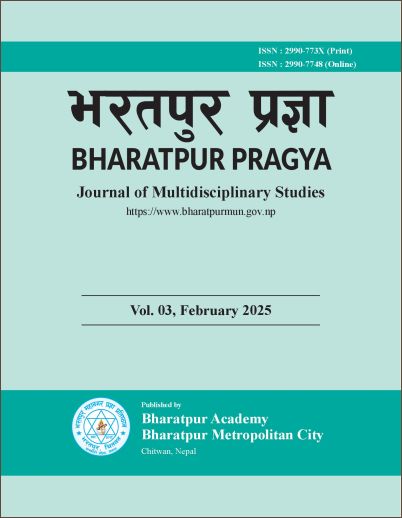International Environmental Law Principles and their Application in Environment Protection Act, 2076
DOI:
https://doi.org/10.3126/bpjms.v3i01.76248Keywords:
Environment, Environment Law, Principles, Environment Protection ActAbstract
The environment is the foundation of human life, making its protection and conservation essential for sustaining livelihoods. To address this critical need, environmental law has emerged as a specialized legal framework. Alongside these laws, several guiding principles have been established to promote environmental protection. This paper adopts a doctrinal research method within a qualitative approach to analyze the application of key international environmental law principles within Nepal’s legal framework. The article examines foundational principles such as the Polluter Pays Principle, the Precautionary Principle, and Sustainable Development, exploring their incorporation into Nepal's Environment Protection Act, 2076. It evaluates how these principles influence the legal structure for environmental conservation, resource management, and ecological harm mitigation while fostering sustainable practices. The study also highlights the Act's alignment with international standards, identifying both its strengths and the gaps in implementation and enforcement. Although Nepal’s environmental laws directly or indirectly incorporate significant international principles, their practical application remains confined to the text of the legislation. The provisions supporting these principles lack sufficient enforcement to realize their objectives effectively. Concluding with actionable recommendations, the paper emphasizes the urgent need to establish robust mechanisms to ensure accountability, strengthen regulatory oversight, and enhance environmental resilience in Nepal.
Downloads
Downloads
Published
How to Cite
Issue
Section
License

This work is licensed under a Creative Commons Attribution-NonCommercial 4.0 International License.
CC BY-NC This license allows reusers to distribute, remix, adapt, and build upon the material in any medium or format for noncommercial purposes only, and only so long as attribution is given to the creator.




